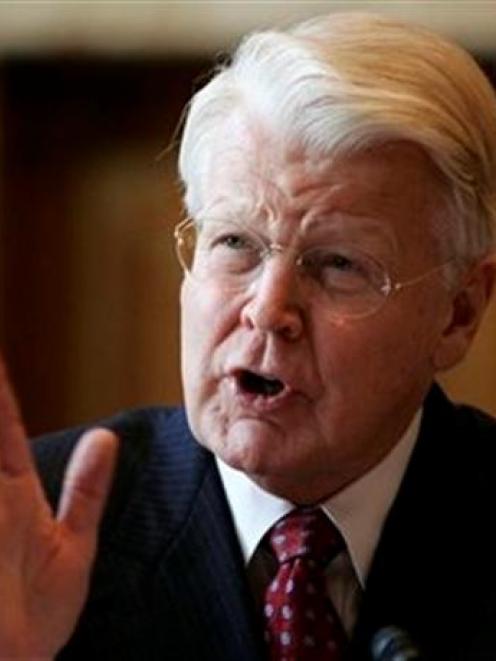
Iceland owes $US5 billion ($NZ6.4 billion) and the vote was seen as a priority to Iceland's economic recovery.
The debt was incurred when Britain and the Netherlands compensated their own nationals who lost savings in online "Icesave" accounts owned by Landsbanki, one of three Icelandic banks that collapsed in late 2008.
Icelandic lawmakers in February backed the repayment plan agreed with the creditors in December; President Olafur Ragnar Grimsson refused to sign the Bill, triggering the referendum.
Prime Minister Johanna Sigurdardottir told Reuters it looked as if the "no side" would win.
In March last year, Iceland rejected an earlier Icesave repayment blueprint in a referendum. Policy makers hoped solving the Icesave issue would help Iceland - whose economy went into deep recession after its bank crisis - get back into financial markets to fund itself.
Europe's top officials said at the weekend Portugal would need around $NZ147.59 billion in rescue loans, but a tense election campaign in the debt-ridden country was set to complicate reaching a deal with opposing political parties.
A full-fledged adjustment programme should be in place by mid-May allowing Portugal to meet huge bond repayments in June, EU Monetary Affairs Commissioner Olli Rehn said.
Mr Rehn said the programme would have to be agreed by all major political parties to ensure that it would be implemented after the elections in early June. That should ensure the Opposition gained power.
Although the bailout request from Portugal has taken some pressure off other struggling eurozone economies like Spain and Italy, Friday's news conference also pointed to the challenges ahead.
Portugal's Government was not the first in the eurozone to collapse amid anger over austerity measures, and doubts are growing over how much longer citizens in debt-ridden countries will accept painful cuts and radical overhauls of traditional privileges, such as early retirement ages and protected professions.
Portugal became the third country in the eurozone to request international help, after last's year multibillion-euro rescue packages for Greece and Ireland from the EU and the International Monetary Fund.
Greece, which almost a year after being rescued is still wallowing in recession, received a warning not to fall behind in implementing the reforms that form part of its programme.
The Greece 2010 budget deficit was thought to have exceeded 10% of gross domestic product (GDP), prompting the need for further austerity measures to reduce the country's gap.
A Reuters exclusive report estimated the Greek deficit was higher than 10% of GDP, significantly higher than previous estimates. Greece had earlier forecast the budget gap at 9.4% of GDP.
Greece's total dept-to-GDP ratio would rise to more than 150% in the next two years before falling.











